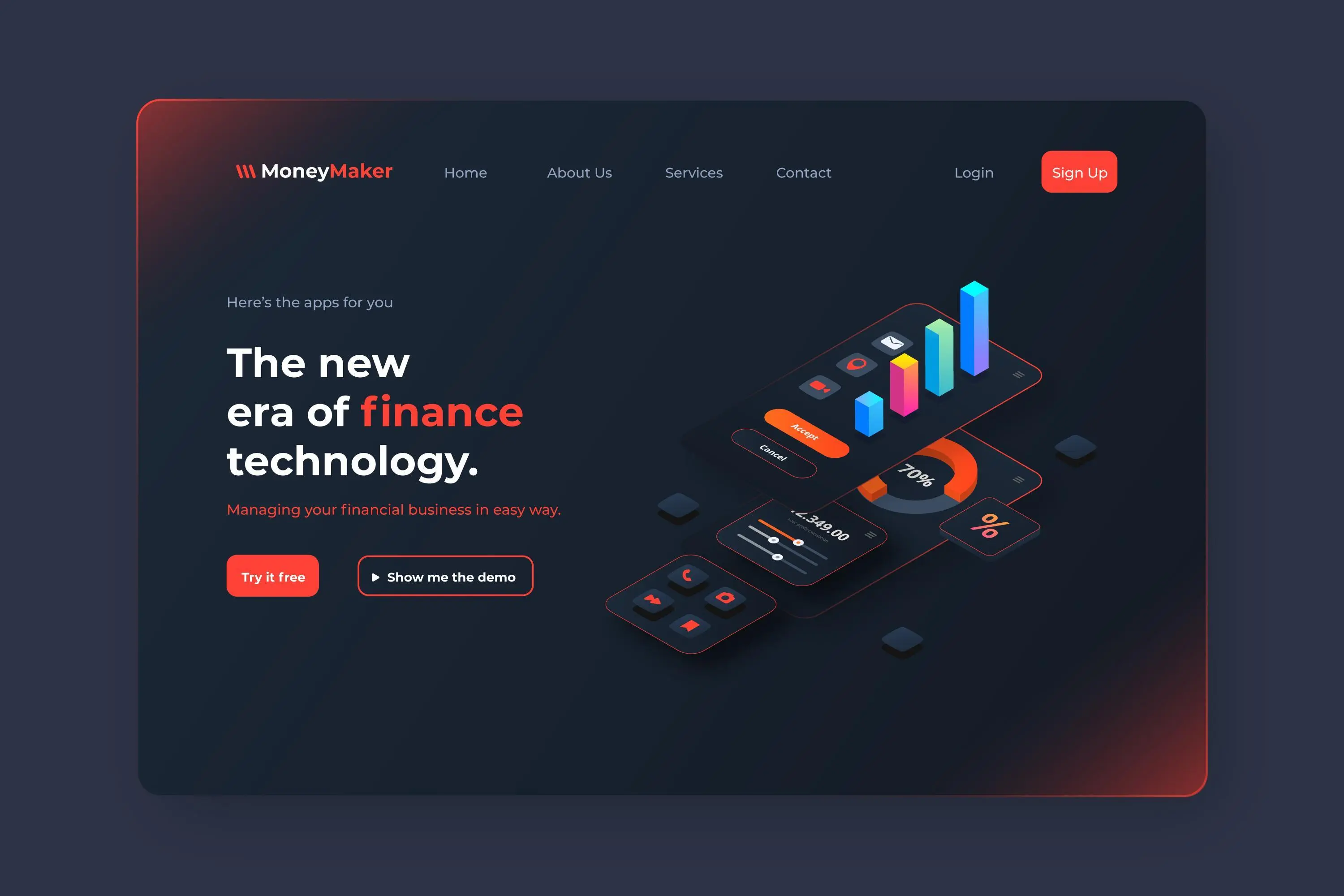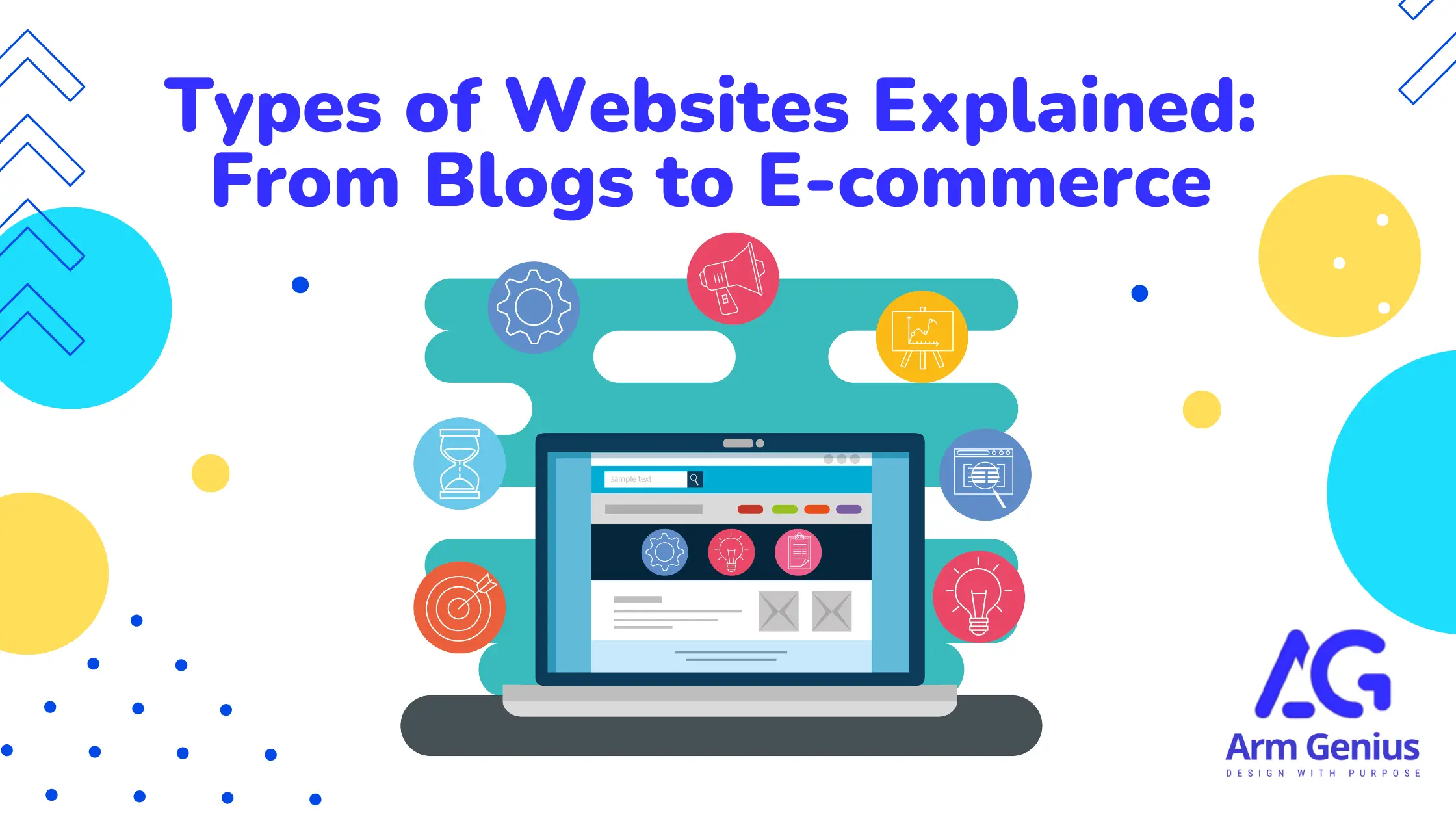Types of Websites Explained: From Blogs to E-commerce
Of course, we all ask the same thing, what are the different types of websites when we are about to have our first website? and so we Google to know the answer. before the answer, you always click through one webpage to the other and to a different website It's like a giant library, packed with information, entertainment, and connection, all wrapped up in digital pages.
Have you ever thought if Facebook, TikTok, and YouTube are Websites? Indeed, they are websites, but with unique designs. Websites are created in a variety of forms and sizes, each with a distinct goal, much like the many sections inside libraries that serve different functions to different kinds of people.
Typically, I write simple but detailed enough guides to help you learn and understand concepts with ease. Today, we're going on a virtual adventure to explore and understand these different types of websites. From static websites that consist of your photography skills to dynamic websites where you can shop, chat, and even learn astrophysics, we'll uncover the secrets behind different website types and how they function. So, get comfortable, and let's enjoy this conversation about the exciting world of websites!
Static Websites: Simple and Cheap
Imagine the ideal resume that promotes your talents or the ideal web portfolio that displays your amazing photos. These are standard illustrations of static web pages. Think of them as smooth, accessible, and educational digital brochures. But because of JavaScript, they can be somewhat interactive, unlike a brochure!
But how do they differ from the dynamic websites out there? Static websites are built with pre-made HTML, CSS, and JavaScript files. No need for complex server-side scripts or databases. This makes them:
- Lightning Fast: Since everything is pre-built, they load instantly, giving visitors a smooth experience.
- Effortless Maintenance: Updating information is a breeze, requiring just changes to the existing files. Or just change the information with a few codes.
- Secure by Nature: With fewer moving parts, they're less vulnerable to security breaches.
- Cost-Effective: Hosting static websites is often cheaper due to their simpler technology.
However, they have some limitations:
Limited Interactivity: Static websites aren't ideal for complex features like user logins or real-time updates.
Less Scalability: Adding large amounts of content or managing user-generated content can be challenging.
Perfect for:
- Portfolios
- Resumes
- Landing pages
- Brochures
- Small business websites with limited interactivity needs
So, if you need a simple, fast, and easy-to-manage online presence, a static website could be your perfect digital home. Watch out for our next exploration into the vibrant world of their dynamic cousins!
Dynamic Websites: completely functional
Remember those static websites – like online brochures? Well, dynamic websites are the complete opposite!
Dynamic websites are websites that can change or update their content in real time based on user interactions, preferences, or other dynamic factors. Unlike static websites that display fixed content, dynamic websites are capable of presenting personalized and interactive content. They often involve databases and server-side scripting languages to dynamically generate pages, allowing users to engage in activities like online shopping, submitting forms, or participating in forums, making them the best in types of websites.
This opens up a world of possibilities:
- Interact like a Pro: Login, comment, shop, personalize your experience - it's all possible! Dynamic websites respond to your actions and preferences.
- Live and Breathless: News updates, sports scores, or stock prices changing in real-time? You got it! Dynamic websites keep things fresh and exciting.
- Scalability: Easily handle large amounts of content, user-generated data, and even millions of visitors simultaneously.
But with great power comes a little more complexity:
- Slower Speeds: Building pages on the fly takes a bit longer than serving pre-made ones, so they might load slightly slower.
- Security Concerns: More moving parts mean more potential vulnerabilities, requiring careful management.
- Higher Costs: Hosting and maintaining dynamic websites often involve more resources and expertise, leading to higher costs.
Perfect for:
- E-commerce websites
- Social media platforms
- Online communities
- News websites
- Blogs
- Banking and financial platforms
- And much more
If you crave interactivity, real-time updates, and the ability to scale, a dynamic website is your answer. But remember, it requires more planning and maintenance.
Remember that there are situations in which choosing between static and dynamic isn't clear-cut. Many websites combine aspects of both strategies, capitalizing on the advantages of both. This can be discussed with your developers or designers and here is your guide to choosing the best website design company.
There is still so much to discover in this article to give you the best answers and inspiration through the internet!
Types of Dynamic Websites

We use dynamic websites all the time! Think about the website you're reading this article on – it's constantly changing with new content, comments, and features. That's the power of dynamic websites! Remember seeing trending dance challenges on TikTok? Or scrolling through inspiring travel photos on Pinterest? Or maybe you learned a new recipe from a YouTube tutorial. These are all examples of dynamic websites in action! But wait, there's more!
Every kind of website, from e-commerce websites full of delights to learning portals overflowing with information, is like something unique in a huge toolbox just waiting to be found! Let's set out on an exciting adventure to discover the many kinds of dynamic websites and realize their incredible potential!
Personal Websites:
Personal websites, often crafted to showcase individual achievements, hobbies, and portfolios, offer a personalized online presence. Featuring sections like the "About Me" page, a portfolio of work, blog posts, and contact details, these websites provide a glimpse into the multifaceted aspects of an individual's life.
Business Websites:
When it comes to a company's digital presence, not all types of websites are important but only those that belong to the business class serve as online shops, promoting products and services, giving background data about the business, and assisting in customer interactions. Business websites typically have sections like "home," "about us," "products/services," and "contact us" that provide an organized online experience for users.
E-commerce Websites:
E-commerce websites are types of websites, that are dedicated to the buying and selling of goods and services. Created with features like order tracking, secure payment methods, and detailed product catalogs, these websites have evolved into multivendor e-commerce platforms reminiscent of industry giants like Amazon and Jumia. you can still checkout our e-commerce design services
Social Media websites:
As one navigates the ever-changing field of interactive types of websites, social media Websites develop as captivating centers for networking, social interaction, and content exchange. Social media platforms like TikTok, X (Twitter), and LinkedIn enable the development of dynamic social networks where users interact and exchange posts, images, and videos, resulting in a dynamic and multifaceted digital environment. While most commonly used in their mobile application version that does not mean that they have website versions
Blogging Websites
Blogging websites enable people and organizations to share their ideas and knowledge by providing resources for content creation, publication, and administration. These websites facilitate easy idea exchange by offering tools for formatting, organizing, and archiving posts.
Content Management Systems (CMS):
Content Management Systems (CMS) such as WordPress are the go-to choice for people looking for complete capabilities for managing online content without a lot of technical knowledge. An easy-to-use interface is provided by these types of websites for the creation, editing, and organization of content for blogs, websites, and other online platforms.
Online Forums:
Online forums are websites where people can interact and have discussions about a variety of topics. These forums develop communities similar to WhatsApp and Facebook groups, encouraging shared interests and expertise through threads, user profiles, and moderator capabilities.
E-learning Platforms:
Breaking away from traditional learning methods, e-learning platforms like Coursera and Udemy open doors to a world of knowledge. Beyond conventional lectures, these types of websites offer interactive features such as quizzes, discussion forums, and progress tracking, providing an engaging and effective learning experience. Personally, I found Udemy particularly enjoyable for mastering new design software, thanks to its intuitive interface and captivating video tutorials.
Job Portals:
Websites connect job seekers with employers by providing job listings, application features, and resume management tools. They streamline the job search and recruitment process for both candidates and employers LinkedIn is the most popular only it’s the combination of social media and job portals plus so many other websites out there.
Real Estate Websites:
Websites that dynamically display property listings, complete with search and filtering options. They often include virtual tours, high-quality images, and detailed property information to help users make informed decisions.
Travel and Booking Platforms:
Travel and Booing websites allow users to plan and book travel-related services such as flights, accommodations, and activities. Dynamic features like real-time availability and price comparisons enhance the user's travel planning experience.
News and Media Websites:
These platforms provide up-to-date news, articles, and multimedia content. These websites often feature dynamic layouts, video integration, and personalized content recommendations based on user preferences. These include Forbes, CNN, and Daily Monitor in Uganda.
Weather Forecast Websites:
Websites like Google Weather Forecast, windy.com, and accuweather.com offer real-time weather information based on location and time. They may include interactive maps, hourly forecasts, and severe weather alerts to keep users informed about current and upcoming conditions.
Gaming Websites:
Websites like Wordle, and fallenlondon are online games with interactive features and multiplayer capabilities. These websites often include dynamic graphics, chat functionalities, and user accounts for a personalized gaming experience.
Financial Services Websites:
Websites providing online banking services, investment platforms, and financial management tools. They offer features such as account management, transaction tracking, and investment portfolio analysis.
Healthcare Platforms:
Websites offering dynamic content related to health information, appointment scheduling, and access to medical records. They may include features like telemedicine options, health trackers, and personalized health recommendations.
Government Websites:
Online platforms offering government services, information, and civic engagement tools. They often include features such as online forms, document downloads, and updates on government initiatives.
SaaS (Software as a Service):
Online-accessible cloud-based apps that give consumers software solutions without requiring local installations. Project management, CRM, and collaboration software are examples of technologies found on SaaS platforms. We have therefore developed our point-of-sale software to assist business owners in keeping track of sales, inventory, and stock.
Streaming Website:
Platforms for streaming audio, video, or live broadcasts. These services include music streaming, video-on-demand (VOD), and live video streaming, and may offer dynamic features such as personalized playlists, recommendations, and interactive live chats.I’ll give Youtube, and Boomplay as live examples.
Static Websites vs. Dynamic Websites:
Building a website? Think pre-fab brochure (static website) or interactive wonderland (dynamic website)?
Static website
Fast & Easy: faster loading speed, effortless updates, security, & budget-friendly. Think portfolios, resumes, or simple business sites.
But: limited interaction, not ideal for heavy content or user engagement.
Dynamic website
Interactive & Scalable: logins, comments, real-time updates, handling tons of users, & content. Perfect for e-commerce, social media, or news platforms.
But: slower speeds, require more security & cost.
Which to choose? Consider your needs: simple & static, or interactive & dynamic!
Remember, you can even mix and match for the best of both for your own desires; just find an expert to guide you along. The final question is are doing with static or dynamic websites, what does it take don't know yet read this article: Website design and Development 101
Conclusion
The decision between static and dynamic websites in an always-changing digital world is similar to choosing the ideal instrument for your digital experience and business. A wide range of options awaits you, regardless of the types of website and your preference for the elegant simplicity of static web pages or the vibrant, interactive attractiveness of dynamic websites.
It is a wise decision for individuals who want the best of both worlds to take into account Arm Genius's seamless integration. Arm Genius is the best partner for your online goals because of their skills in creating websites that are the optimal mix of simplicity and engagement. Go forth and explore the wide world of websites, and let Arm Genius be your trusted advisor for creating an engaging online persona. This is the beginning of your internet journey!





